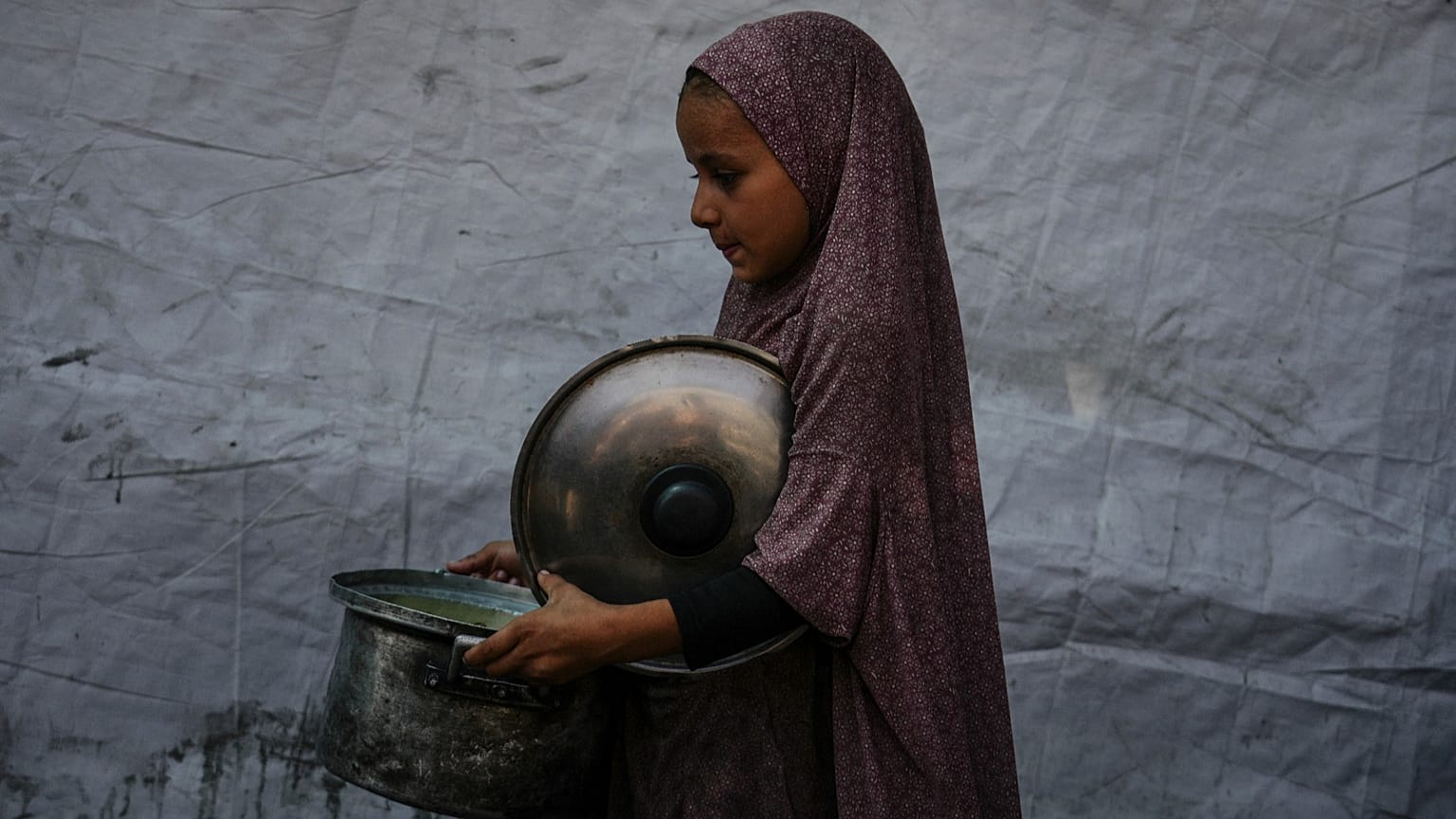Health
Urgent Warning: Over 54,000 Children in Gaza Face Malnutrition Crisis

A recent study highlights a severe malnutrition crisis affecting children in the Gaza Strip, with more than 54,600 children estimated to be acutely malnourished. This alarming figure comes from the United Nations Relief and Works Agency for Palestine Refugees in the Near East (UNRWA), which underscores the dangers posed to children’s health and development in a region grappling with ongoing conflict and restrictions on humanitarian aid.
According to the study published in The Lancet, child malnutrition increased significantly between January 2024 and August 2025. The research indicates that malnutrition levels rose during periods when Israel imposed strict limits on humanitarian assistance to the Gaza Strip. As of mid-August, over 12,800 of those children were suffering from severe malnutrition, a condition that poses critical risks to their health and development.
Malnutrition is not merely a lack of food; it fundamentally disrupts the body’s ability to function. Children affected by malnutrition experience difficulties in movement, cognition, and immune response, making them vulnerable to fatal infections. Treatment typically involves weeks of special nutritional supplements, which are currently in short supply in Gaza.
The study also reported that between January 2024 and mid-August 2025, UNRWA staff screened nearly 220,000 children under the age of five for malnutrition. The results revealed a troubling increase in malnutrition rates from 4.7 percent in January 2024 to 14.3 percent by August 2025. Although there was a brief decline to 5.5 percent following a six-week ceasefire in March, the subsequent 11-week blockade severely restricted access to food and medical supplies.
As the situation stands, 15.8 percent of children under five in Gaza are malnourished, with a staggering 28.8 percent reported in Gaza City alone. The Gaza Health Ministry has reported that over 67,000 people have died in the ongoing conflict, though it does not differentiate between civilians and combatants. The humanitarian crisis has escalated, with approximately 400 people in Gaza dying from malnutrition and related causes since January, including 101 children.
Dr. Akihiro Seita, UNRWA’s health director and one of the study’s authors, emphasized the urgency of the situation: “Without an end to the war, a further deterioration in early childhood nutrition with increased mortality is inevitable in the Gaza Strip.” His comments come as the region faces a declared famine, officially recognized in August, and as fresh ceasefire talks are underway between Israel and Hamas.
Dr. Masako Horino, a nutrition epidemiologist at UNRWA and the lead scientist for this study, added, “Following two years of war and severe restrictions in humanitarian aid, tens of thousands of preschool-aged children in the Gaza Strip are now suffering from preventable acute malnutrition and face an increased risk of mortality.” In the past two months alone, over 10,000 children have been diagnosed with acute malnutrition, with approximately 2,400 at immediate risk of starvation.
The findings of this study are critical, emphasizing the immediate need for increased humanitarian assistance and a resolution to the ongoing conflict in Gaza. The situation calls for urgent international attention to prevent further loss of life among the most vulnerable.
-

 Top Stories3 months ago
Top Stories3 months agoTributes Surge for 9-Year-Old Leon Briody After Cancer Battle
-

 Entertainment4 months ago
Entertainment4 months agoAimee Osbourne Joins Family for Emotional Tribute to Ozzy
-

 Politics4 months ago
Politics4 months agoDanny Healy-Rae Considers Complaint After Altercation with Garda
-

 Top Stories4 months ago
Top Stories4 months agoIreland Enjoys Summer Heat as Hurricane Erin Approaches Atlantic
-

 World5 months ago
World5 months agoHawaii Commemorates 80 Years Since Hiroshima Bombing with Ceremony
-

 Top Stories3 months ago
Top Stories3 months agoNewcastle West Woman Patricia Foley Found Safe After Urgent Search
-

 Top Stories5 months ago
Top Stories5 months agoFianna Fáil TDs Urgently Consider Maire Geoghegan-Quinn for Presidency
-

 World5 months ago
World5 months agoCouple Convicted of Murdering Two-Year-Old Grandson in Wales
-

 World5 months ago
World5 months agoGaza Aid Distribution Tragedy: 20 Killed Amid Ongoing Violence
-

 World5 months ago
World5 months agoAristocrat Constance Marten and Partner Convicted of Infant Murder
-

 Top Stories4 months ago
Top Stories4 months agoClimbing Errigal: A Must-Do Summer Adventure in Donegal
-

 Top Stories4 months ago
Top Stories4 months agoHike Donegal’s Errigal Mountain NOW for Unforgettable Summer Views









